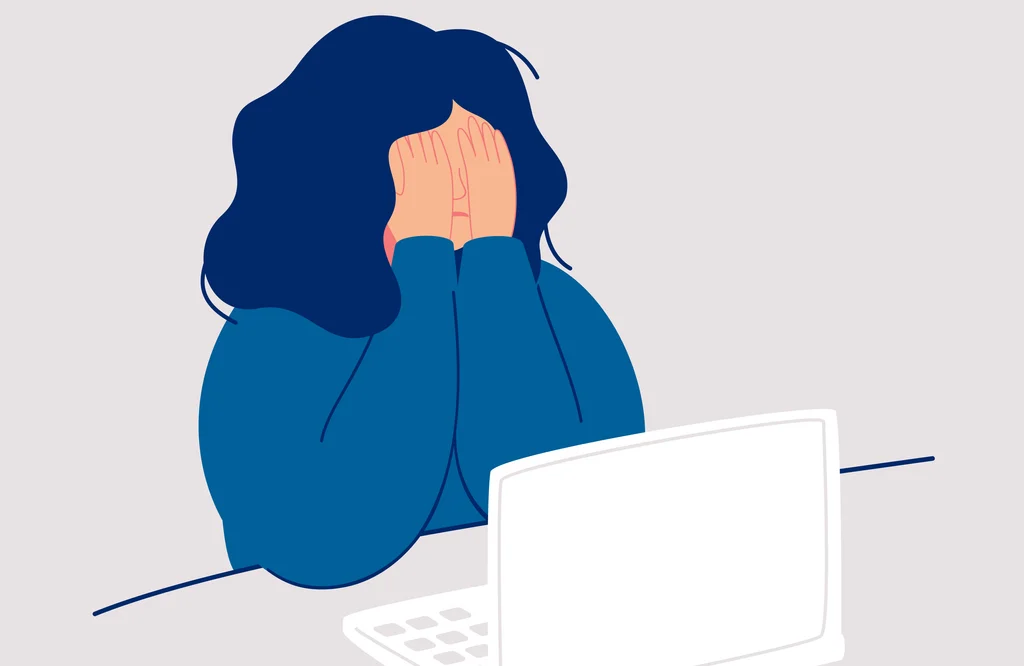Mobbing (psychological harassment) is a sort of psychological abuse that you may experience at work when co-workers or bosses purposefully target you and attack you repeatedly. It refers to all forms of evil behaviour, including coercion, aggression, humiliation, and appeasement. Being the target of rude and destructive behaviour is the first step in the mobbing process. Due to this circumstance, which manifested as enmity between a person or group of people and a person or group of people, the individual starts by alienating himself/herself before moving on to his/her surroundings.
What is Psychological harassment at Work?
Indifference to the job, boredom, and subpar performance prolong the pattern. The victim of this abuse of power feels angry, intimidated, left out, embarrassed, hurt, his/her self-confidence is damaged, he/she starts to doubt his/her skills, and he/she is under a lot of stress. Such injuries result in some medical illnesses and psychological problems. Some people lose the ability to work. Resignation or dismissal are frequent outcomes of this.
How does mobbing manifest itself in the workplace?
- Limiting communication and self-expression: Those in positions of authority limit the victim’s opportunities for both self-expression and public display. For instance, the victim may frequently be interrupted, yelled at, reprimanded in the face, ridiculed for his/her work, ignored for his/her triumphs, and exaggerated for his/her failings.
- Isolation from social interactions: Those around the victim move away, remain silent, act as if he/she is not present, etc.
- Assault on dignity includes verbal abuse, the spread of untrue rumours, derision, and sexual innuendo, among other things.
- Attacking the standard of living and employment status: Giving the victim meaningless tasks or taking back the positions they were given, changing their occupations frequently, failing to assign the victim any specific tasks, and inflicting general injury that will put a strain on finances, among other things.
- Direct assault on health: Making the victim perform strenuous physical labour, making threats of bodily injury, sexual harassment, etc.
What are the types of mobbing?
- Horizontal mobbing: Within this context, actions taken amongst individuals of equal seniority are assessed. When people are competing and on equal footing, this sort of behaviour develops.
- Vertical mobbing: If the person doing the mobbing is the individual’s boss or in a senior position, it may be considered vertical mobbing.
- Indirect mobbing: This is when a subordinate harasses another subordinate. Employees of this sort intentionally strive to make his/her life difficult by refusing to carry out the tasks assigned to them by their supervisors or by whining to a more capable management about how unpleasant the tasks assigned to them are. This form of mobbing is uncommon.
What are the effects of mobbing on the individual?
When mobbing occurs at work, the victim is the one who suffers the most. Mobbing has long-lasting negative consequences on the victim in the form of cumulative harm that develops over time. We can observe that the social image suffers first when we examine at how mobbing impacts a person socially. Over time, the person who has been excluded from the workplace and has lost his or her professional identity also loses his or her position in the social and familial context.
The individual might be unable to blame or self-explain what is happening. The unfavourable characteristics of his/her health start to show during this time. The loss of a person’s connection of trust—against the outside world and himself/herself—is one of mobbing’s repercussions on their quality of life. The deterioration of this trust relationship makes life challenging in many areas, including family life, the social environment, and interpersonal relationships. We start to feel nervous, embarrassed, and bashful.
Some behavioural and mental changes, such as insomnia, loss of appetite, depression, distress, anxiety, weakness, crying episodes, forgetfulness, irritability, sudden anger, silence, loss of desire to live, and dissatisfaction with the things one once loved, can be seen in people who have been exposed to mobbing practises. Mobbing victims may even have suicidal thoughts when they are subjected to severe abuse and harassment.
In light of this, those who are subjected to mobbing techniques should be aware that their predicament is a workplace syndrome, that they are not powerless, and that blaming themselves for the psychological violence and harassment they encounter is not a workable answer. Receiving psychological counselling during this process will aid in stress management, help one recognise one’s personality’s strengths, and help one establish appropriate limits. Improvement studies, anti-mobbing measures, and employee and employer education on the problem should not be overlooked.
If you experience workplace mobbing in Australia, can you claim compensation?
If you think that you suffer psychological injuries due to workplace bullying, you may be entitled to compensation benefits and a lump sum pay out. You can learn detailed information about what kind of information and documents will be needed for the compensation claim and how the process will work from a work injury lawyer.
What benefits does a claim for compensation include?
- medical expenses: healthcare expenses related to your injuries such as psychiatric therapy and medical equipment
- weekly payments: based on your pre-injury income
- lump sum claim payment: if your physical permanent impairment meets the 15% permanent impairment threshold.
- domestic assistance: if your permanent impairment meets the 15% permanent impairment threshold.
- Common law/work injury damages pay out: if your employer was negligent and your permanent impairment meets 15%.
When should you start your workplace bullying claim? Who can you get help from?
Workplace injuries are assessed under workers‘ compensation claims which should be made within 6 months after the date that you discover your injury. If your permanent impairment rate is 15% or greater, you may make a common law claim within three years.
There are some exceptions that may extend these durations. You should contact lawyers for more information on psychological injury workers compensation.
